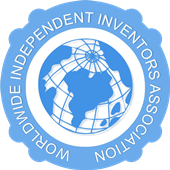- BY Admin
- POSTED IN Articles, Fără categorie
- WITH 0 COMMENTS
- PERMALINK
- STANDARD POST TYPE

STORE OF WIIA TECHNOLOGIES 2022: https://worldwideinvention.com/store/
There are two provisions in the Regulations annexed to the Patent Cooperation Treaty (PCT) that relate to the search and examination of patent applications concerning computer programs. These two provisions are present in the PCT, which does not provide for the grant of patents but provides a unified procedure for filing, searching and examining patent applications, called international applications. The question of patentability is touched when conducting the search and the examination, which is an examination of whether the invention appears to be patentable.
These two provisions are Rule 39.1 PCT and Rule 67.1 PCT, and, in conjunction respectively with Article 17(2)(a)(i) PCT and Article 34(4)(a)(i) PCT, may have a concrete impact on the procedure under the PCT, in the search and examination performed under the PCT. Indeed, depending on the patent office which is in charge of the search or examination under the PCT, the application filed for an invention relating to a computer program may or may not be searched or examined. In addition, the ISA and IPEA (see background section) that do not search such applications to a certain extent have diverging practices with respect to determinations of exclusions as to computer programs.
In addition to the consequences these legal provisions may have in practice, Rule 39.1 PCT is also significant from an interpretive perspective to understand the origin of the much debated Article 52(2) and (3) EPC (see Software patents under the European Patent Convention (EPC) and Article 52 EPC). The computer program exclusion was indeed inserted in the EPC in line with Rule 39.1 PCT, so that Rule 39.1 predates Art. 52(2) and (3) EPC.
Background
The Patent Cooperation Treaty (PCT) is an international patent law treaty, which provides a unified procedure for filing patent applications to protect inventions. A patent application filed under the PCT is called an international application or PCT application.
The filing of an international application results in a search, called the international search, performed by a patent office (accompanied with a written opinion regarding the patentability of the invention which is the subject of the application) and, optionally, an examination, called the international preliminary examination, also performed by a patent office. The PCT does not provide that the searches and examinations are performed by one central patent office (the WIPO does not perform searches and examinations). This is in contrast for instance with the procedure under the European Patent Convention (EPC), which provides that the European Patent Office (EPO) is in charge of performing all searches and examination for all European patent applications.
Under the PCT, the international search and the international preliminary examination, which is optional, are conducted by different national or regional patent offices, formally called respectively International Searching Authorities (ISA) and International Preliminary Examining Authority (IPEA) . Applicants, depending on their nationality and on the patent office at which the application was filed, i.e. the Receiving Office, may have the opportunity to opt to have the search performed by one of a group of ISAs.
From Wikipedia, the free encyclopedia




